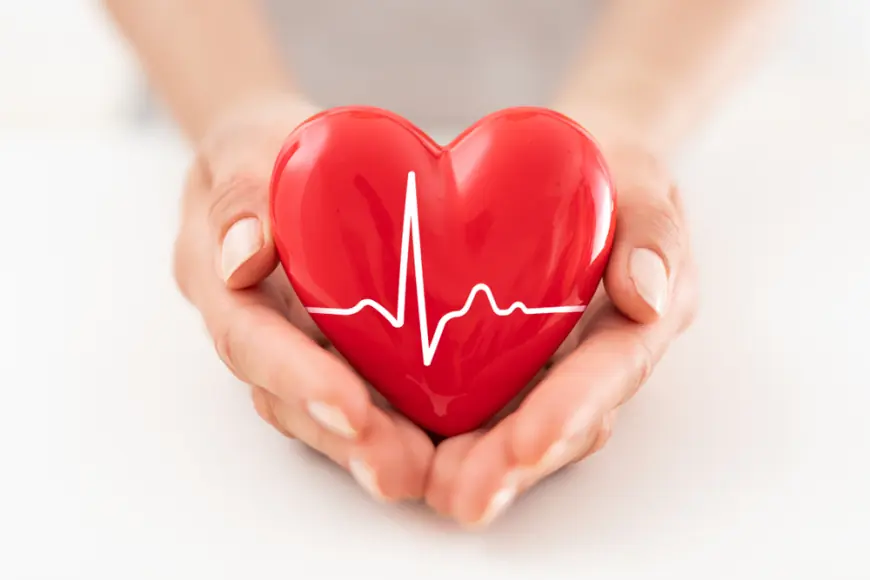10 Signs Your Cholesterol Is Affecting Your Energy Levels
Discover 10 warning signs that high or low cholesterol may be draining your energy. Learn how imbalanced cholesterol impacts fatigue, focus, and recovery.

Cholesterol often comes up in conversations about heart health, but its role in energy is rarely discussed. While your body needs cholesterol to build cells, produce hormones, and aid in digestion, an imbalance, whether too high or too low, can drain your energy in surprising ways. If you’ve been feeling constantly fatigued without an obvious cause, your cholesterol levels could be a hidden factor. Understanding the link between cholesterol and energy can help you recognize early warning signs and take proactive steps toward better health.
1. Persistent Fatigue
One of the most common indicators of cholesterol-related problems is ongoing fatigue. When cholesterol builds up in your arteries, it reduces blood flow and oxygen supply to your muscles and organs. This lack of efficient circulation makes you feel sluggish, even after a full night’s sleep.
2. Shortness of Breath During Simple Activities
If walking up the stairs or doing light chores leaves you breathless, cholesterol may be interfering with your heart’s ability to pump effectively. Plaque buildup narrows arteries, forcing your heart to work harder to deliver oxygen. Over time, this not only lowers your stamina but also makes you feel drained after activities that once felt easy.
3. Muscle Weakness
Cholesterol plays a role in muscle function by helping regulate hormones and energy production. Extremely low cholesterol, often caused by overly strict diets or aggressive medication, can lead to muscle weakness. On the other hand, blocked arteries from high cholesterol can reduce nutrient delivery to your muscles, resulting in constant heaviness or weakness.
4. Difficulty Concentrating
Your brain needs cholesterol to build neurotransmitters and maintain healthy cell membranes. When levels are imbalanced, you may struggle with mental fog, poor concentration, or forgetfulness. This mental fatigue often accompanies physical tiredness, making it harder to stay productive throughout the day.
5. Dull or Heavy Feeling After Meals
If you feel unusually tired after eating, your cholesterol could be playing a role. High cholesterol can impair digestion by affecting bile production, which your body needs to break down fats. Poor fat metabolism can make meals harder to process, leaving you bloated and fatigued afterward.
6. Irregular Sleep Patterns
Cholesterol imbalances can disrupt hormone regulation, including melatonin and cortisol, which are critical for sleep cycles. People with high cholesterol often report insomnia or restless sleep, while low cholesterol levels may contribute to night sweats or frequent waking. Poor sleep, in turn, worsens daytime fatigue and reduces energy.
7. Swelling or Heaviness in Legs
Chronic tiredness in your legs may signal poor circulation caused by cholesterol buildup. Plaque deposits narrow the arteries in the lower body, reducing blood flow and oxygen delivery. This condition, known as peripheral artery disease (PAD), not only makes walking painful but also lowers your energy capacity over time.
8. Frequent Headaches
While headaches can result from many causes, cholesterol-related blockages in blood vessels sometimes trigger them. Restricted blood flow can lead to tension headaches or migraines, which sap energy and make daily functioning more difficult. If headaches occur alongside fatigue, it may be worth checking your cholesterol levels.
9. Mood Changes and Irritability
Cholesterol is essential for producing serotonin and other mood-regulating chemicals. Both very high and very low cholesterol can disrupt this balance, leading to irritability, stress, or mood swings. Since mental well-being is closely tied to energy levels, mood changes may be a subtle sign of cholesterol’s impact.
10. Slow Recovery After Exercise
If you notice it takes longer than usual to bounce back from workouts, cholesterol may be involved. High cholesterol can restrict blood flow, limiting your muscles’ ability to receive oxygen and nutrients during recovery. Low cholesterol, on the other hand, can impair hormone function, slowing muscle repair and leaving you drained for days after exercise.
Why Cholesterol Affects Energy
To understand why cholesterol impacts energy, it’s important to look at its biological functions. Cholesterol is a building block for hormones such as estrogen, testosterone, and cortisol, all of which regulate metabolism and energy. It also contributes to bile production, which helps your body absorb fat-soluble vitamins (A, D, E, and K). When cholesterol levels are too high, arteries narrow and circulation suffers. When too low, hormone production and nutrient absorption decline. In both cases, your body cannot efficiently create or use energy.
Secure an Appointment for an HDL Test at Nayab Lab via Instacare
What You Can Do
If you recognize several of these signs, it’s important to consult a healthcare professional and get your cholesterol tested. Blood tests can reveal whether your cholesterol is within a healthy range and help determine next steps. Lifestyle changes that support healthy cholesterol and energy include:
-
Eating a balanced diet: Focus on whole grains, lean proteins, fruits, vegetables, and healthy fats such as those from nuts and olive oil.
-
Exercising regularly: Physical activity improves circulation and helps balance cholesterol levels.
-
Managing stress: Chronic stress affects both hormone balance and heart health.
-
Avoiding smoking and excessive alcohol: Both can raise bad cholesterol (LDL) and lower good cholesterol (HDL).
-
Getting enough sleep: Restorative sleep helps regulate hormones and energy production.
Final Thoughts
Cholesterol is often viewed as a silent threat because it doesn’t always cause obvious symptoms until complications arise. However, its impact on energy levels is a signal you shouldn’t ignore. From constant fatigue and muscle weakness to poor concentration and slow recovery, these warning signs suggest that your cholesterol could be interfering with your body’s ability to function at its best. By recognizing these early symptoms and making lifestyle adjustments, you can protect not only your heart but also your overall energy and quality of life.
What's Your Reaction?
 Like
0
Like
0
 Dislike
0
Dislike
0
 Love
0
Love
0
 Funny
0
Funny
0
 Angry
0
Angry
0
 Sad
0
Sad
0
 Wow
0
Wow
0





























































